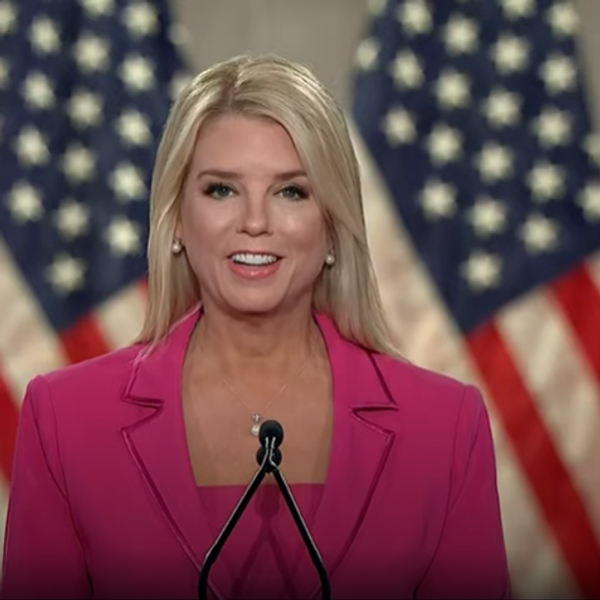Villages Evacuate After Ukraine Dam 'Partially Destroyed' By Russia
Kyiv (Ukraine) (AFP) - A Russian-held dam in southern Ukraine was damaged on Tuesday, with Kyiv and Moscow accusing each other of blowing it up while locals were forced to flee rising waters.
The dam was partially destroyed by "multiple strikes", Moscow-installed authorities claimed just as expectations were rising over the start of Ukraine's long-awaited offensive.
Ukraine, however, accused Russia of blowing up the Kakhovka hydroelectric plant.
"The terrorists' goal is obvious -- to create obstacles for the offensive actions of the armed forces," Ukrainian presidential aide Mykhaylo Podolyak said.
Ukrainian President Volodymyr Zelensky convened a meeting of his National Security Council over the Russian "war crime", said his chief of staff, Andriy Yermak.
Several villages have been "completely or partially flooded" following damage to the dam and evacuations from the area have begun, a Ukrainian official said.
"About 16,000 people are in the critical zone on the right bank of the Kherson region," Oleksandr Prokudin, head of the Kherson miliary administration, said on social media, adding that there was flooding in eight areas along the Dnipro River.
'Defensive Operations'
The Kakhovka dam, seized at the start of the Russian offensive in Ukraine, notably supplies water to the Crimean peninsula, annexed by Moscow in 2014.
Built on the Dnipro River in 1956, during the Soviet era, the structure is partly made of concrete and partly of earth. It is one of the largest pieces of infrastructure of its kind in Ukraine.
News of the damage came after Zelensky praised his troops for advances claimed near the devastated city of Bakhmut, while Russia said it had repelled a large-scale attack.
"Well done, warriors! We see how hysterically Russia reacts to any step we take there, all positions we take. The enemy knows that Ukraine will win," Zelensky said in a video message published on social media.
Earlier, Ukrainian Deputy Defense Minister Ganna Malyar had noted "some success" on the battlefield.
"The Bakhmut sector remains the epicenter of the hostilities. We are advancing there on a rather wide front," she said.
"The defensive operation includes counteroffensive actions. Therefore, in some sectors, we are conducting offensive actions," Malyar added.
In May, Russia said it seized the now-destroyed eastern Ukrainian city of Bakhmut, the scene of the longest and one of the bloodiest battles of the war.
Ukraine says it has been preparing a major offensive to recapture territory lost to Russia, but that there would be no announcement about when it would start.
On Sunday, Ukrainian Defence Minister Oleksiy Reznikov said words "can only do harm" and posted a cryptic tweet, quoting lyrics from the Depeche Mode song Enjoy the Silence.
US President Joe Biden wished Ukraine well on Monday in its expected counteroffensive.
Asked by AFP if he thought the expected Ukrainian pushback would work, the president answered by silently raising his hand and crossing his middle and index fingers.
The war has escalated in recent weeks, with increased attacks on both sides of the border with Russia.
Military experts expect Ukrainian forces to test Russian defences for weaknesses before starting a full-blown offensive.
'Large-scale Offensive'
Earlier on Monday, Russia's defense ministry said "the enemy launched a large-scale offensive in five sectors of the front" on Sunday in the south of the Donetsk region.
Moscow said it had thwarted the offensive, killing a total of "1,500 servicemen" and destroying more than 100 armoured vehicles.
But the claims were dismissed on Tuesday by the boss of Russian mercenary group Wagner, Yevgeny Prigozhin, as "wild fantasies".
Prigozhin has been embroiled in a public spat with Russia's regular army and has accused Moscow's military leadership of not supplying enough ammunition, among other criticisms.
Large parts of Donetsk have been held by pro-Moscow separatists since 2014.
It is one of four eastern Ukrainian territories that Russia formally annexed in September last year, along with Lugansk, Zaporizhzhia and Kherson, despite never fully controlling them.
The ministry posted what it said was a video of the battle, showing Ukrainian armoured vehicles coming under heavy fire.
Russian President Vladimir Putin's top commander in Ukraine, Chief of the General Staff Valery Gerasimov, "was at one of the advanced command posts", the ministry said.
The ministry later said it defeated "new attempts to pierce Russian defences" in southern Donetsk.
The Russian and Ukrainian claims could not be independently verified.












